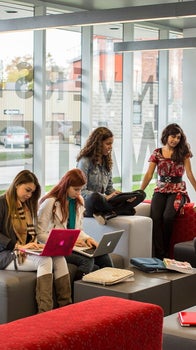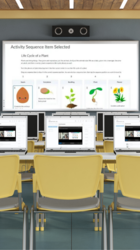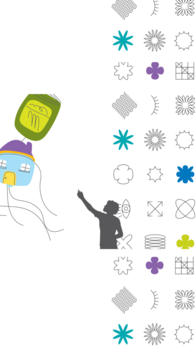The following projects are all current "Beta" TII projects. To learn more about the project team members, the project's timeline, applicable resources/artifacts, and more, click on the corresponding project.
Adapting Student-Led Individually Created Courses (SLICCs) to Encourage Self-Directed Learning
SLICCs are among a growing body of self-directed and experiential learning models in post-secondary institutions, which have been linked to improving students' ability to become effective, self-regulated learners. The traditional course structure is removed in a SLICC, with the instructor providing desired learning outcomes in broad strokes, prescribing little in terms of what will be learned and even less on how it will be learned. In a SLICC, defining these aspects of the course is in fact the student’s responsibility. A student’s plan outlines their proposed learning experience and how they will complete it. Additionally, they must audit the skills they currently possess and those they would need to develop to achieve results. And finally, students determine how they will assess themselves as they complete their proposed learning experience. Therefore, SLICCs offer a flexible, personalized, student-centered approach to learning that empowers students to actively participate in the co-creation and evaluation of their learning.
This project will work towards making SLICCs a recognized, legitimate form of course delivery in faculties across campus. Its goals are to determine if SLICCs promote more student engagement and accountability for learning, and position SLICCs as a vehicle for interdisciplinary collaboration and learning.


Accelerating Integration of Sustainability into the Curriculum
No career is likely to be unaffected by climate change and sustainability considerations. Our graduates need core competencies and discipline specific knowledge of climate change and sustainability if they are to be global citizens prepared to thrive in an age of rapid change.
This project will consider how curriculum offerings could be adapted to allow all students to develop foundational and discipline specific sustainability competencies. Its goals are to create opportunities for collaboration, interdisciplinary work, and shared resources by reaching out to faculty, staff and students to better understand the range of supports programs may need to build these student competencies.
Accessible Education
Based on the principle that accessible education is better education, UW envisions a post-secondary education experience for learners where accessibility is at the forefront of what we do. Leveraging the AODA's post-secondary education standard recommendations that were written by experts with disability lived experience in post-secondary education sector, this project will support the creation of a teaching and learning environment in which innovative, accessible education practices are valued and supported, and so are tried, assessed, and improved over time.
This project will position accessible education as a road to better teaching and learning for everyone, not merely a regulatory approval matter, and recognize that the disability community contributes to our diversity and re-imagining our teaching and learning approaches is required to fully include all identities.


Evaluating LEARN Tools - Creator+ & Performance+
The University of Waterloo is currently undergoing a process to determine the future of D2L’s Brightspace (LEARN) Learning Management System (LMS). The version of LEARN that we use at UW has many pedagogical features that are used frequently by instructors and to great effect. There are, however, additional features available that we have not yet licensed, nor have we investigated their potential efficacy for our institution. Creator+ provides tools that enable the straightforward creation of interactive course content. Performance+ provides tools and dashboards that unlock insights into course and learner data and effectiveness.
This project will evaluate the efficacy of these two tools and determine how they can be used to better support UW students in their learning.
Interdisciplinary Graduate Student Designed and Led "Wicked Problems" Course
UW offers several interdisciplinary courses at the undergraduate level. Despite these initiatives, interdisciplinary research and teaching is still underdeveloped at UW and remains a leading strategic initiative for the University and its Faculties in their forward-looking plans. Creating even more paths to pursue interdisciplinarity are needed, in both research and teaching. This project brings together teams of PhD candidates to design, develop and offer a course related to contemporary “wicked problems” that catalyzes each PhD candidate’s research and disciplinary expertise while also offering them a meaningful teaching experience. The teaching team receives mentorship and support with regard to course conception, design and integration by those with disciplinary and pedagogical expertise. The courses are offered to senior undergraduate students across the university as electives, and collectively create an interdisciplinary construct that fosters learning and an integration of knowledge, methods and ways of knowing that could not be achieved within a single disciplinary approach.
This project will expose undergraduate students to (student) research and researchers, potentially motivating future studies. Learnings from this work will also ideally lead to the development of a process and pathway for interdisciplinary course development.
